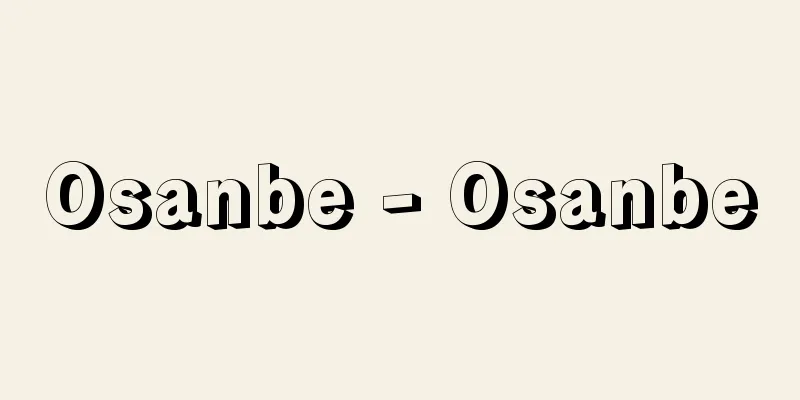Goseibai Shikimoku - Rules for punishing enemies

|
Fifty-one Articles August 1st, 1999 (excerpt) 2. Repairing temples and pagodas and performing Buddhist rites and other religious services Although temples and shrines are different, the reverence is the same. Therefore, the work of repairs and the usual duties should conform to the previous article. Do not invite later criticism. However, those who selfishly take advantage of temple services and do not perform their duties should be promptly stripped of their positions. 3. The affairs of the Magistrates of the various provinces The duties of the Right General's family are to demand duty, to deal with plots, and to deal with murderers (attached to them). They are to deal with night raids, robbers, bandits, and pirates. However, in recent years, they have been assigned to districts and villages, and have been assigned public duties to the Shoho. They are not Kokushi (provincial governors) but they interfere with national affairs, and they are not Jito (local lords) but they are greedy for land profits. Their actions are extremely unethical. Even if they were Gokenin (vassals of the Gokenin) for many generations, they could not run away without their families at the time. At the same time, the Gesu (lower officials) and Shokan (manors) of various provinces are said to be Gokenin (vassals of the Gokenin) and to be able to deal with orders from the Kokushi and the Ryōke (local lords). Even if such people wish to serve as shugo, they should not be encouraged to do so. We should quickly follow the example of the time of the Udaisho family and suspend the shugo duties, as well as cases of treason and murder. If they go against this code and get involved in other matters, or if the illegality becomes apparent due to lawsuits by the kokushi or ryoke, or because of the sadness of the jito and local people, they should be reassigned to their positions and replaced with more moderate people. As for the position of deputy governor, one person should be appointed. 6. The punishment of kokushi and ryoke does not involve the Kanto Imperial Inquiries. The above applies to kokuga (provincial offices), manors, shrines, temple lands, and Honjo. As far as the matter is concerned, it is no longer necessary to bring about Imperial Inquiries. Even if there is a request, it will not be appointed. Next, the fact that they filed a lawsuit without bearing the Honjo's petition is that the lords of various provinces, as well as shrines and temples, should have filed a lawsuit with the Honjo's petition, but if they do not bear that petition, is this going against reason? From now on, no punishment will be imposed. 18. After transferring a property to a daughter, if there is a discord, will the parent repent and return? Although the titles are different for men and women, the kindness of parents is the same. Although there is a legal teaching here, a daughter should not rely on the text saying that she will not repent and should not be afraid of the sin of being unfilial. Would she not transfer her property to her daughter, knowing that her parents might turn to hostile arguments? This would lead to the severance of ties between parents and children. It would also be the basis for violation of religious decrees. If a daughter should turn away from her parents, she should leave it to her parents to decide whether to proceed or not. As a result, women will be obliged to perform the duties of loyalty and filial piety in order to fulfill their obligations, and parents will be obliged to exercise loving feelings in order to provide a nurturing and upbringing for their children. 26. Transferring a territory to a son, receiving an Imperial decree of relief, then retracting the territory and transferring it to another son. The above should be left to the discretion of the parents, as detailed in the previous article. Therefore, even if an Imperial decree of relief is given for the transfer of a territory in advance, if the parent retracts the territory and transfers it to another son, it should be left to the discretion of the parents, and punishment should be given under the later transfer rule. 34. The crime of taking another man's wife. Anyone who takes hold of another man's wife, whether it be rape or sexual relations, shall have half his land seized and be removed from service. If he has no family, he shall be exiled. The land of the woman shall also be seized. If he has no land, he shall be exiled. Next, if a woman is caught at a crossroads, her vassal will be suspended from service for 100 days. As for servants and below, they will have to follow the example of the Shogun's family and shave one side of their head. However, if a priest commits a crime, consideration will be given to the punishment at the time. 41. Matters concerning slaves and other miscellaneous people: If ten years pass without any decision being made, following the example of the general's family, no further action will be taken, regardless of right or wrong. Next, regarding the gender of children born to slaves, although there are details according to the will of the law, we should follow the precedents of the time, that is, boys should follow their fathers and girls should follow their mothers. 42. When the peasants flee, the lords of each province claim that they have fled, detaining their wives and children and seizing their property. This is a serious violation of benevolence. If they are summoned and have not yet paid their taxes, they must pay them. If not, they must promptly recover the damage and return it. However, when it comes to leaving the people to their own devices, it is best to leave it to their own will. 48. 1. The matter of buying and selling land It is the law that private land inherited from an emperor may be sold in times of need. However, if someone who has received a special favor through meritorious service or hard work sells or buys land at will, that is not without punishment. From now on, this should definitely be stopped. If someone sells land in violation of the regulations, both the seller and the buyer will be punished.
July 10, 1281, First Year of the Joei Era, Venerable Jōen, Sagami Daijō, Fujiwara Naritoki Goseibai ShikimokuThe basic law code of the Kamakura Shogunate. 51 articles. Enacted in 1232 (Joei 1). It was the first codified law of the samurai class, which existed alongside the law of the nobility and the law of the honjo class. However, looking at the law of the samurai class as a whole, various laws were added to the code after this, and many areas were left to customary law. [Tokuhiko Ushita] nameThe official name is "Goseibai Shikimoku," which clearly states that it is a judicial guideline. It was originally called Shikijo, and later simply Shikimoku. It is also commonly called "Joei Shikimoku" depending on the era in which it was established. It was also called Kanto Shikimoku by the nobles and honjo. [Tokuhiko Ushita] EnactmentIt was established on July 10, 11 years after the Jōkyū War (1221). At the initiative of the regent Hojo Yasutoki, legal experts from the Council of State, such as Yano Tomoshige, Sato Naritoki, Saito Jōen, and Ota Yasutsura, were the main contributors to the compilation, and it was finalized after the Council of State's consensus was reached. There are other theories that there were 13 people, including Yasutoki and the aforementioned people, who compiled the Codex, or that there were six, but the former is more likely. There is also a theory that the Confucian scholar Kiyohara Noritaka, a nobleman who lived in Kamakura at the time, was the sole editor of the Codex, but this is a false theory that arose from the fact that Kiyohara later gave a lecture on the Codex in Kyoto. [Tokuhiko Ushita] the purposeSince the time of Minamoto no Yoritomo, the shogunate had built a legal order unique to the samurai class, different from the Ritsuryo Code and the Court Nobility Code. It was based on the spontaneous legal customs that had arisen among the eastern samurai (local lords in the Kanto region) since the end of the Heian period, and was established as the "Udaishokenorei" (Udaisho family customs) through the dictatorial power of Kamakura Shogun Yoritomo. However, with the expansion of the shogunate's sphere of control following its victory in the Jōkyū War, many disputes arose between the gokenin (vassals) and honjo (lords of manors), and between the gokenin and peasants in the western part of the country. The law was enacted with the aim of resolving these disputes and stabilizing the shogunate's control over the gokenin. [Tokuhiko Ushita] ContentsThe 51 articles of the Shikimoku are said to have been based on Prince Shotoku's Seventeen Article Constitution, with three times as many articles arranged in the three directions of heaven, earth and man. The Kenmu Shikimoku also had 17 articles, and while it is true that there was a belief in the prince in samurai society, it is unclear whether the Shikimoku was directly conscious of the Seventeen Article Constitution. Its central ideology is the concept of "reason," but this is not something that can be defined abstractly, as it is based on the general sense of justice of samurai and is embodied through the concept of fairness of those in charge of courts. The contents of the Shikimoku can be categorized as follows: [1] Temples and shrines: Articles 1 and 2. [2] Organization of the shogunate: (a) shugo (military governors) – Articles 3 and 4; (b) jito (lord lords) – Articles 5 and 38; (c) others – Articles 37, 39 and 40. [3] Land Law, (a) land ownership – Articles 7, 8, 36, 43, 47; (b) control of land – Articles 42, 46; (c) sale of land – Article 48. [4] Criminal Law - Articles 9-17, 32-34. [5] Family Inheritance Law: Articles 18 to 27. [6] Litigation proceedings: Articles 6, 28-31, 35, 41, 44, 45, 49-51. [2] and [4] are the parts that were enacted by the shogunate's subjective will, [5] strongly reflects the customary law of samurai society, also known as samurai customs and private law, and [3] is the intersection point between the two. In particular, Article 8, the Chigyo Nenkiho (the system of acquisition by prescription), strongly indicates the uniqueness of samurai law compared to Ritsuryo and Kugeho. Also, while Articles 1 to 31 are arranged in an orderly manner, Articles 32 to 51 are inconsistent, so it is believed that the original form of Shikimoku was the current Articles 1 to 31 divided into 51 articles, which were later shortened and Articles 32 to 51 were added to form the current form. [Tokuhiko Ushita] significanceThe Shikimoku does not deny the Ritsuryo Code, the Court Nobles' Code, or the Honjo Code, but it excludes these in the Shogunate's domain, which mainly targeted vassals, and clarifies the conscious independence of the samurai code. During the Nanboku-cho period, the Shikimoku was already considered sacred and was sometimes placed inside the womb of a Buddha statue and prayed to. Although it no longer has any practical effect, it was so well known among the people in the Edo period that the rituals in Article 1 of the Shikimoku were a joke to wives and children. It also became popular as a model for writing, along with the Teikininourai, and played an important role in the education of the common people. It is included in Gunsho Ruiju, Chusei Hoseishiryoshu (Collection of Historical Materials on Legal Systems in the Middle Ages) (Volume 1), and Chusei Seishi Shakai Shiso (Part 1). [Tokuhiko Ushita] ``Study on the history of legal systems'' written by Chikayuki Miura (1925, Iwanami Shoten) ▽ ``Study on the history of legal systems'' written by Naoichiro Ueki (1966, Meishon Kankai) [Supplementary Material] |A book published in the Edo period. Published in 1607 (Keicho 12). Owned by the National Diet Library . "The Code of Punishment" Source: Shogakukan Encyclopedia Nipponica About Encyclopedia Nipponica Information | Legend |
|
五十一箇条 貞永元年八月 日(抄) 2 一 寺塔を修造し、仏事等を勤行(ごんぎょう)すべき事 3 一 諸国守護人奉行の事 6 一 国司・領家の成敗は関東御口入(くにゅう)に及ばざる事 次に本所の挙状(きょじょう)を帯びず越訴(おっそ)致す事、諸国庄公ならびに神社・仏寺は本所の挙状をもつて訴訟を経(ふ)べきの処、その状を帯びずばすでに道理に背くか。自今以後、成敗に及ばず。 18 一 所領を女子に譲り与ふるの後、不和の儀あるによつてその親悔(く)い還(かえ)すや否やの事 26 一 所領を子息に譲り、安堵(あんど)の御下文を給はるの後、その領を悔い還し、他の子息に譲り与ふる事 34 一 他人の妻を密懐(みっかい)する罪科の事 次に道路の辻において女を捕ふる事、御家人においては百箇日の間出仕を止むべし。郎従以下に至つては、大将家御時の例に任せて、片方の鬢髪(びんぱつ)を剃(そ)り除くべきなり。ただし、法師の罪科においては、その時に当たりて斟酌(しんしゃく)せらるべし。 41 一 奴婢雑人(ぬひぞうにん)の事 次に奴婢所生(しょしょう)の男女の事、法意の如くば子細ありといへども、同じき御時の例に任せて、男は父に付け、女は母に付くべきなり。 42 一 百姓逃散(ちょうさん)の時、逃毀(にげこぼち)と称して損亡せしむる事 48 一 売買所領の事
貞永元年七月十日 御成敗式目
|
<<: Old-growth club vine - Old-growth club vine
Recommend
X-ray scattering
...When an X-ray hits a free electron and is defl...
Gerhaert van Leyden, N.
...In the second half of the 14th century, the Pa...
Divining rod - Fortune telling rod
…Because of this deep connection between people&#...
Jokanji Temple
This Shingon Buddhist temple was located in Fushim...
Ujimune - Uji no Sou
...the head of a clan in ancient Japan. Also call...
Kanshi
…Jiaozipu formed a union and assumed joint liabil...
Elamite - Elamugo
A language spoken in the ancient Elamite region, ...
Electric resistance - denki teikou (English spelling)
The property of a material to hinder electric cur...
Potala Palace - Po-ta-la
The Chinese translation is Potala Palace. The pal...
Site of Kinowa Fortress - Kinowa Fortress
The remains of an ancient castle fortress in Jowa,...
Salt wind damage - Enpu gargle
Damage caused by salty air currents flowing in fro...
plyaska
...Musically, these are indistinguishable from th...
Treaties of Rome
The Treaty Establishing the European Economic Comm...
Mobile phone - mobile phone
A small, portable information terminal that uses ...
Electron energy loss spectroscopy
...Electron spectroscopy by the former process is...









